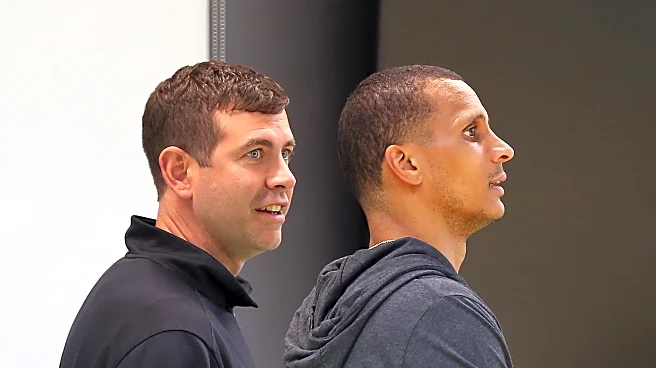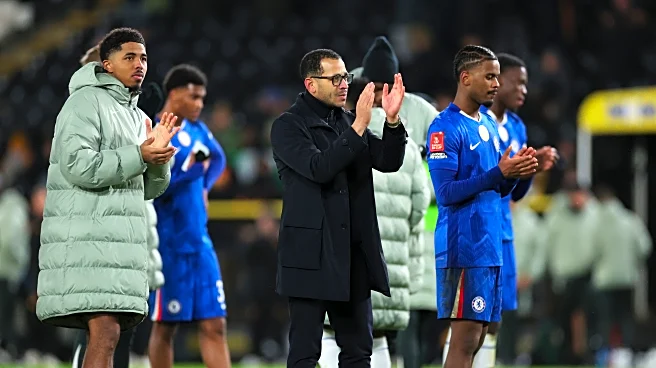Rapid Read • 8 min read
Israelis gathered at the Western Wall for Selichot prayers dedicated to the 50 hostages held in Gaza. The Hostages and Missing Families Forum organized the event, which included participation from Rabbi Shmuel Rabinowitz and families of the hostages. Former hostage Keith Siegel addressed President Trump in a video statement, urging him to facilitate a deal for the hostages' release. Siegel, who was abducted from Kibbutz Kfar Aza, emphasized the urgency of reaching an agreement to bring the hostages home. The event highlighted the ongoing efforts and emotional appeals for international intervention in the hostage situation.
AD
The appeal to President Trump underscores the significant role the U.S. can play in international negotiations, particularly in conflict zones like Gaza. The involvement of a former hostage in the plea adds a personal dimension to the diplomatic efforts, potentially influencing public opinion and policy decisions. The situation affects not only the hostages and their families but also broader geopolitical relations between the U.S., Israel, and Hamas. Successful negotiations could lead to improved diplomatic ties and stability in the region, while failure to act might exacerbate tensions and prolong the hostages' plight.
The next steps involve potential diplomatic discussions between the U.S. and Israeli governments to explore viable solutions for the hostages' release. Stakeholders, including international human rights organizations, may increase pressure on political leaders to act swiftly. The Israeli government might also reassess its strategies in dealing with Hamas, considering public sentiment and international diplomatic channels. Continued advocacy and public demonstrations are expected to maintain focus on the issue, potentially influencing policy decisions.
The hostage situation raises ethical questions about the use of civilians in political conflicts and the responsibilities of international leaders in humanitarian crises. It also highlights the cultural significance of the Western Wall as a site for communal prayer and solidarity, reflecting the deep emotional and spiritual connections involved in the appeals for the hostages' return.
AD
More Stories You Might Enjoy












